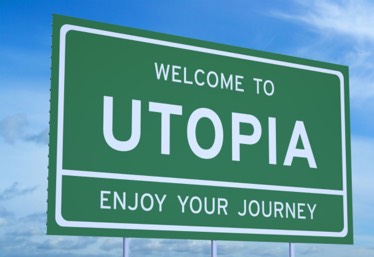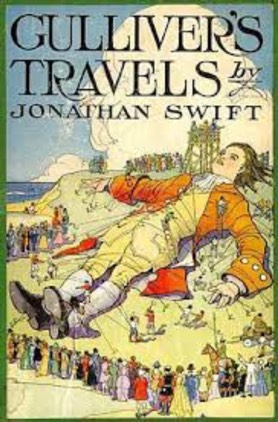Sign up for FlowVella
Sign up with FacebookAlready have an account? Sign in now
By registering you are agreeing to our
Terms of Service
Loading Flow

The word utopia comes from the Greek words ou, meaning "no" or "not," and topos, meaning “place", that is to say a place that does not exist. Since its original conception, utopia has come to mean a place that we can only dream about, a true paradise.Dystopia, which is the direct opposite of utopia, means “bad place” and is a term used to describe a utopian society in which things have gone wrong and so a terrible, nightmarish place, the worst you can imagine.
.
Although the word utopia was coined in 1516 by Sir Thomas More when he wrote Utopia, writers have written about utopias for centuries, including the biblical Garden of Eden in Genesis and Plato's Republic, about a perfect state ruled by philosopher-kings. More's Utopia criticized contemporary English life by describing an ideal political state in a land called Utopia, or Nowhere Land. Other early fictional utopias include various exotic communities in Jonathan Swift's famous Gulliver's Travels (1726), even though they may be interpreted more reasonably as examples of dystopias, since they show many flaws or downsides.
The idea of utopias continued to be popular during the nineteenth century. For example, English author Samuel Butler wrote Erewhon (1872) ("nowhere" spelled backward) and Erewhon Revisited (1901), and William Morris wrote News From Nowhere (1891).

